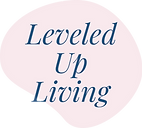Breaking Free From Limiting Beliefs
- Julia Bauer
- Jan 19, 2024
- 4 min read
Identifying Limiting Beliefs
A limiting belief is a thought or state of mind that you think is the absolute truth and stops you from doing certain things. These beliefs don't always have to be about yourself, either. They could be about how the world works, ideas, and how you interact with people.
Limiting beliefs can greatly limit the development and achievement in your personal and professional goals. They can also undermine your confidence and lead to self-sabotaging behaviors. Limiting beliefs create a barrier between you and your goals, preventing you from taking risks or pursuing new opportunities. Whether these thoughts are conscious or subconscious, our brains can't take a joke, and regard each one as absolute truths.
To find your limiting beliefs, think about the things you would like to achieve but haven't started working towards. Then look for the justification you find for not taking action on this goal. These justifications often reside in the "why" of the reasoning. Unraveling these limiting beliefs can be a very challenging endeavor, which requires a lot of introspection and a conscious effort to dismantle ingrained thought patterns.
Common Types of Limiting Beliefs
There are many limiting beliefs that women face—far too many to list here. They will, of course, vary from person to person, but many women face similar obstacles when it comes to the shaping of their belief systems.
Below, you'll find six of the most common limiting beliefs along with an explanation to provide a better understanding of how they may be holding you back.
“I’m not good enough.”
This is something that most individuals struggle with at some point or another in their life – but it is an especially common belief that holds many women back from taking on new experiences or taking risks for new opportunities. Limiting beliefs such as this one often stem from low self-esteem and can begin to affect your confidence, happiness, success in relationships/marriage, career choices you make, and so on.
“I don’t trust people.”
This is a common limiting belief that can stem from past experiences – for example, someone you trust, deceiving or betraying you. Limiting beliefs like this one can make it hard to form new relationships and friendships because of the negative view you have when it comes to trusting others.
“I don’t deserve happiness/success.”
This limiting belief usually comes from a feeling of unworthiness. You might feel as if you don’t deserve the good things in life, or feel that you have to work harder than others to achieve success.
“I can’t do it.”
This limiting belief is frequently fear-based. It can stop you from trying new things, going out of your comfort zone, or achieving your goals.
“It’s not worth it.”
This limiting belief usually comes from a place of pessimism or negative-based thinking, and can keep you from pursuing opportunities that could be beneficial to your life.
“I can’t change.”
This limiting belief is often based on a lack of self-belief and self-confidence and can restrict your ability to grow and improve as a person.
Overcoming Limiting Beliefs
Identifying your limiting beliefs is the first step to overcoming them. Once you have identified them, you can start working to replace them with more positive and empowering beliefs. Listed below are a few tips that might help!
Start by acknowledging your limiting belief.
Don’t try to ignore it, stay aware of the thoughts that you feel are holding you back.
Challenge and question the limiting belief.
Ask yourself why you believe that thought; what evidence do you have to support the limiting belief? Is it actually true, or is it something you have assumed to be true without checking if it’s accurate first? Where did this limiting belief stem from?
Find the limiting belief’s opposite.
This can be extremely helpful when transitioning your mindset and overall outlook on life. For example, if one of your limiting beliefs is “I don’t deserve to be happy”, try thinking about what the opposite belief would be instead, “I deserve to be happy”.
Get a Life Coach.
This is where you will have the ability to create a new set of beliefs that will act as a foundation for your life. Your life coach will help you implement this new belief system and will be there for support and accountability throughout your journey.
The best way to overcome limiting beliefs is to take action and put your new belief system into practice. Start with something small, like trying that new pilates class or going to the gym even when you don’t feel like it. Putting your new beliefs into practice (even when you don't want to) will help them become more ingrained and habitual. As many have said already—limiting beliefs are often rooted in fear—by taking action, we can overcome that fear.
The bottom line is that all limiting beliefs—while having the potential to be very powerful—are just thoughts. That's it. They don’t have to control you, and you don’t have to believe them! You can overcome your limiting beliefs with a bit of reflection and determination. The most important thing to remember is to be willing and open to making a change. Limiting beliefs can hold you back from achieving your goals. Overcoming them will give you the power and freedom to live the life that you want, and that's truly all you deserve!
If you're interested in Life Coaching, book your free virtual consultation with me to see if we would be a good fit!

Comments